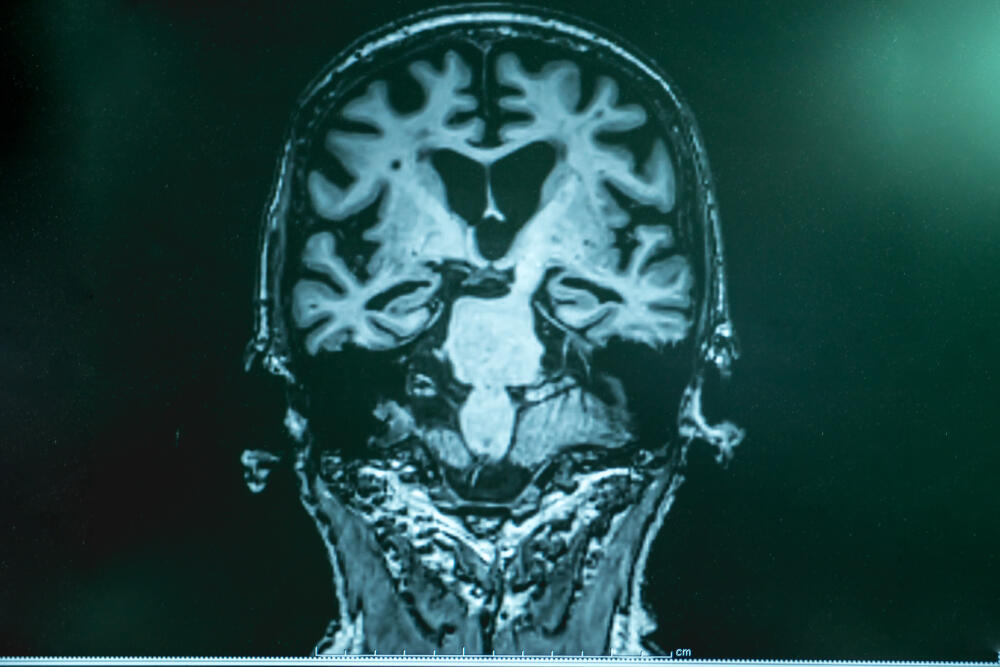Getting your Trinity Audio player ready...
A new study published Sunday in the journal JAMA Neurology found that a combined blood test can detect Alzheimer’s disease early with about 90% accuracy. The research indicates that the blood test can identify brain changes decades before symptoms appear, potentially allowing for early medical intervention to significantly slow disease progression.
Researchers compared the blood test for diagnosing Alzheimer’s with evaluations by neurologists and primary care physicians, revealing a significant gap: Neurologists correctly diagnosed the disease in only 73% of cases, and primary care doctors in just 61%.
In contrast, the blood test outperformed both. The study involved 1,213 individuals with an average age of 74, who underwent cognitive assessments in primary care and specialist clinics in Sweden.
The new blood test combines two biomarkers enabling early detection of Alzheimer’s: p-tau217 and the amyloid beta 42/40 ratio. The 42/40 ratio is used in Alzheimer’s research to indicate the presence of amyloid beta proteins in the brain and the risk of Alzheimer’s disease. Phosphorylated tau 217 (p-tau217) is one of several blood biomarkers researchers use to diagnose cognitive impairment and early-stage Alzheimer’s.
“The increase in p-tau217 concentrations in the blood is very significant in Alzheimer’s disease. In the dementia stage of the disease, levels are more than eight times higher compared to adults without Alzheimer’s,” said Dr. Sebastian Palmqvist, a co-investigator and senior neurologist at Lund University in Sweden.
A study published in January found that the p-tau217 test is about 96% accurate in detecting elevated levels of amyloid beta and about 97% accurate in detecting tau protein. The presence of amyloid beta and tau tangles in the brain are hallmark signs of Alzheimer’s disease.
3 View gallery


With an accuracy of 90%, a new combined blood test will allow early Alzheimer's diagnosis
(Photo: Shutterstock)
In the new study, the p-tau217 test was combined with another Alzheimer’s blood biomarker, the amyloid beta 42/40 ratio, which measures two types of amyloid proteins. The study suggests that combining these tests significantly aids in diagnosing the disease.
Currently, the test is not yet available for use as further research on its effectiveness is needed, but researchers believe it is set to revolutionize Alzheimer’s diagnosis and treatment. They argue that current diagnostic methods – interviews, short cognitive tests, and CT scans – are not sufficiently accurate and can lead to misdiagnosis.
Experts also noted that some new dementia drugs, such as Lecanemab and Donanemab, target amyloid beta and are less effective in individuals with advanced tau tangles, which are central to Alzheimer’s pathology.
Furthermore, researchers believe that wait times for diagnosis could significantly increase, but accurate blood tests could dramatically shorten them. According to mathematical models based on the aging population in the U.S., by 2033, if doctors rely solely on current cognitive assessments to diagnose dementia, people will wait an average of six years before knowing if they are eligible for new treatments. However, if accurate blood tests are used, wait times could drop to between six and 13 months, as far fewer people would need to see a specialist or undergo additional tests.
Until this blood test is approved and available, a similar blood test has been available in Israel since last March. The test allows for the early diagnosis of Alzheimer’s with high accuracy through biological markers (biomarkers). It is based on detecting amyloid protein, which disrupts communication between nerve cells and causes brain tissue destruction.
The test, called AD-Detect, is exclusively represented in Israel by the company Medical Link and is designed to identify high concentrations of amyloid beta protein in a blood sample, indicating Alzheimer’s. The test was developed by the American diagnostics giant Quest Diagnostics, which analyzes the blood samples sent from Israel to a lab in California. The test’s reliability has already been proven in clinical trials, showing an 89% accuracy in detecting the biological markers of proteins characteristic of Alzheimer’s.
Alongside this test, two additional tests can be performed, which together form a comprehensive combined test for early-stage Alzheimer’s assessment. The second test is the p-tau 181 test, which includes another Alzheimer’s marker, the presence of phosphorylated tau protein, as its level is a highly accurate indicator of active Alzheimer’s brain pathology. This test is not required for medication but serves as supplementary information for assessing the disease's presence.
The third test is the AD-Detect ApoE, a genetic test assessing the risk of amyloid beta protein accumulation in the brain and Alzheimer’s disease based on the individual’s genetic makeup. It checks for the presence of the E4 allele variant in the ApoE gene, a genetic risk factor for Alzheimer’s development. This test is also crucial for matching treatment with anti-amyloid drugs, as the presence of two E4 alleles means the risk from treatment outweighs the benefits. This test is nearly 100% accurate.
The test is already available in Israel and is intended for men and women of any age with a doctor’s referral, who, as part of their medical evaluation for cognitive status, were referred for further tests. The cost of the amyloid test is 3,450 shekels. With the addition of the phosphorylated tau test, the cost is 4,850 shekels, and the comprehensive test, including all three tests, is 5,850 shekels. The test is included in most private health insurance plans. Blood samples are collected in labs across the country, and results are received within about two weeks.



